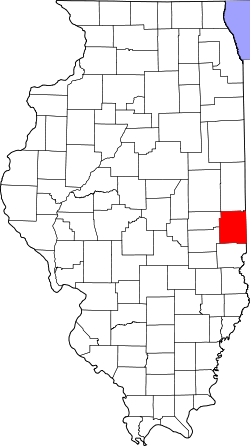Nevins | |
|---|---|
 Edgar County's location in Illinois | |
| Coordinates: 39°32′02″N87°38′19″W / 39.53389°N 87.63861°W | |
| Country | |
| State | |
| County | Edgar |
| Township | Elbridge |
| Elevation | 679 ft (207 m) |
| Area code | 217 |
| GNIS feature ID | 414377 [1] |
Nevins is an unincorporated community in Edgar County, Illinois, United States. [1]

